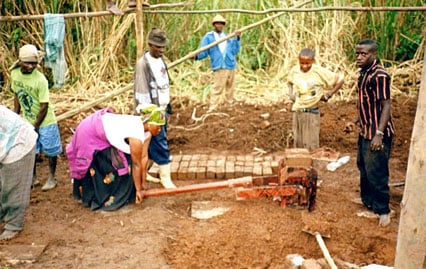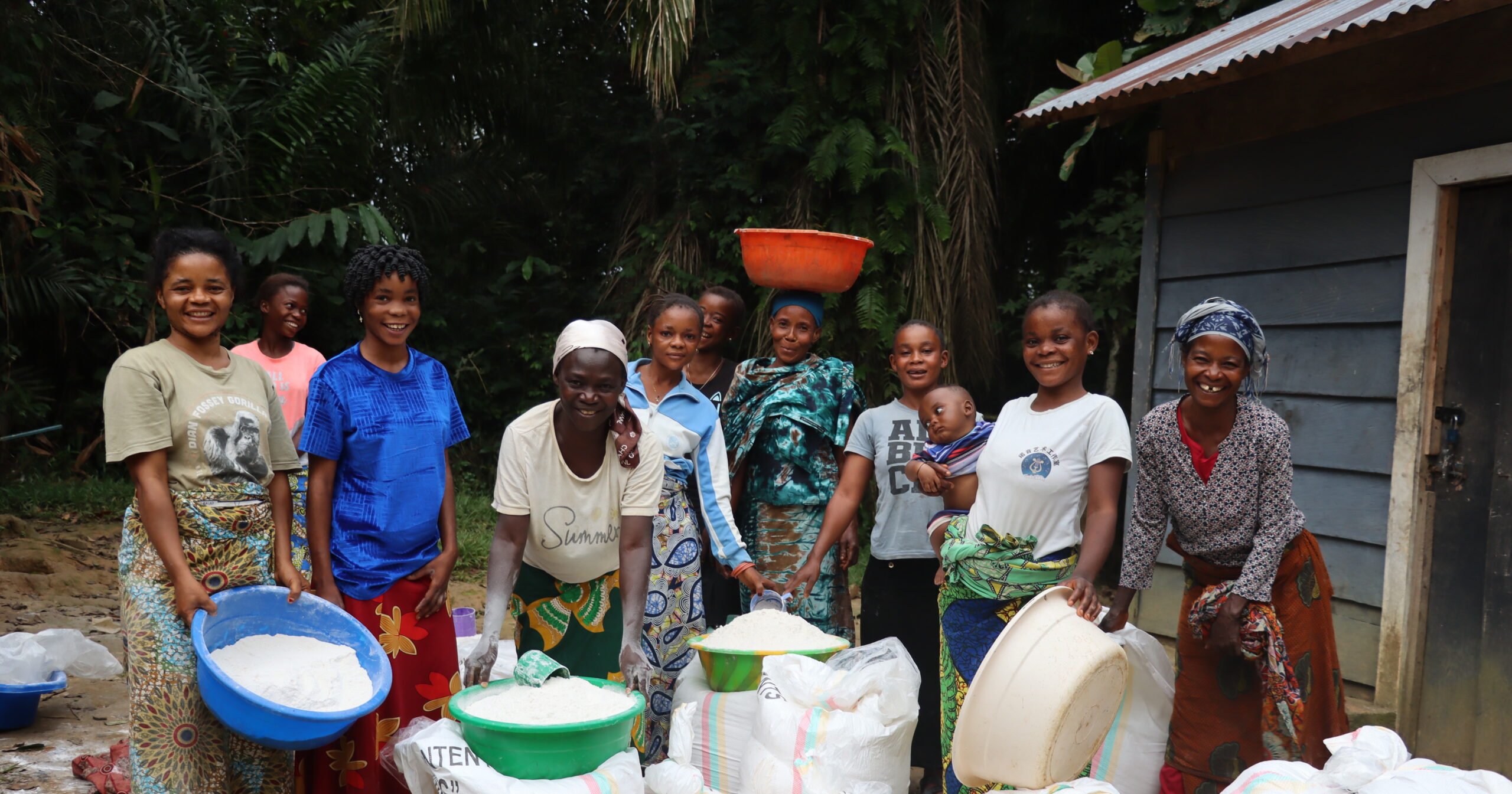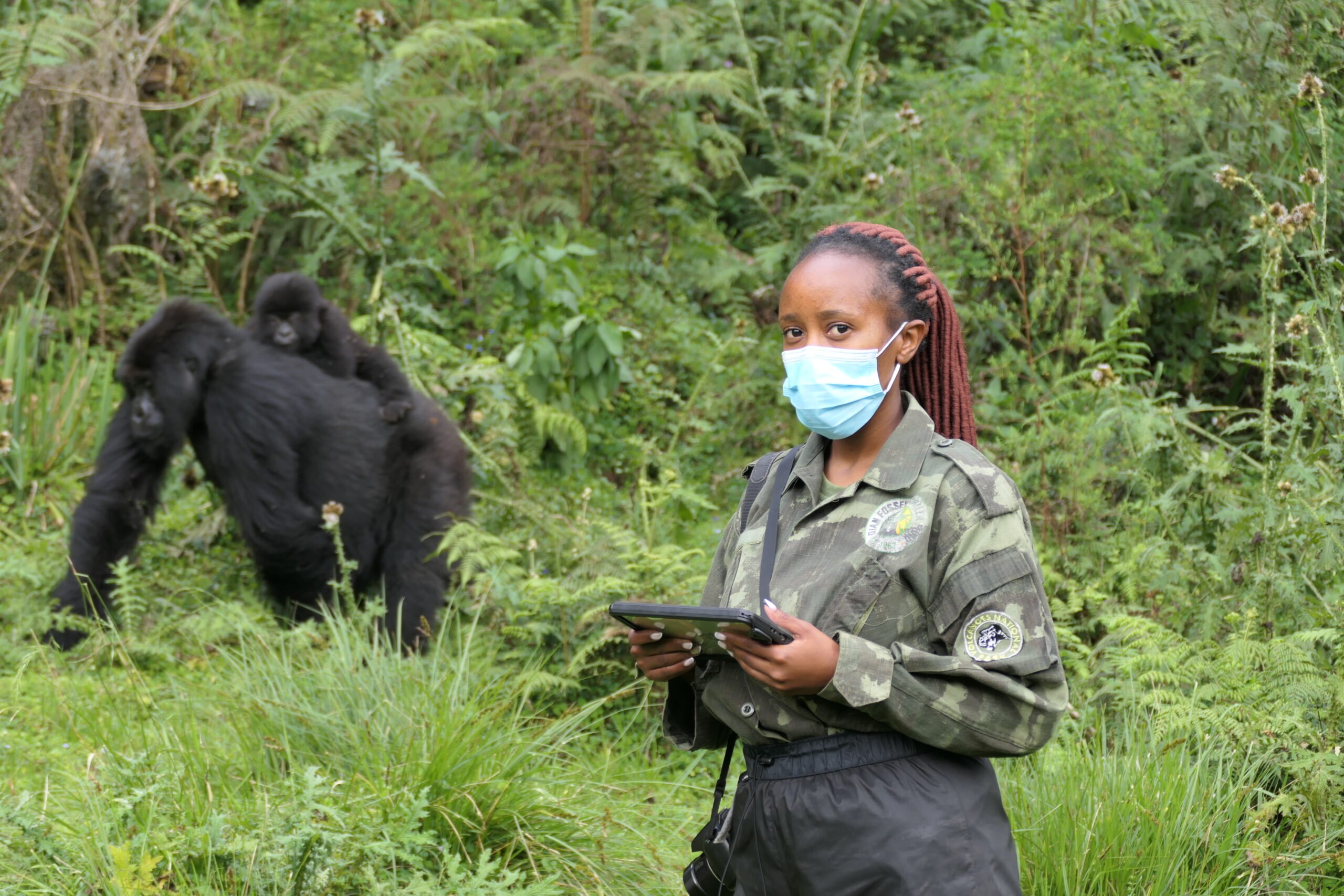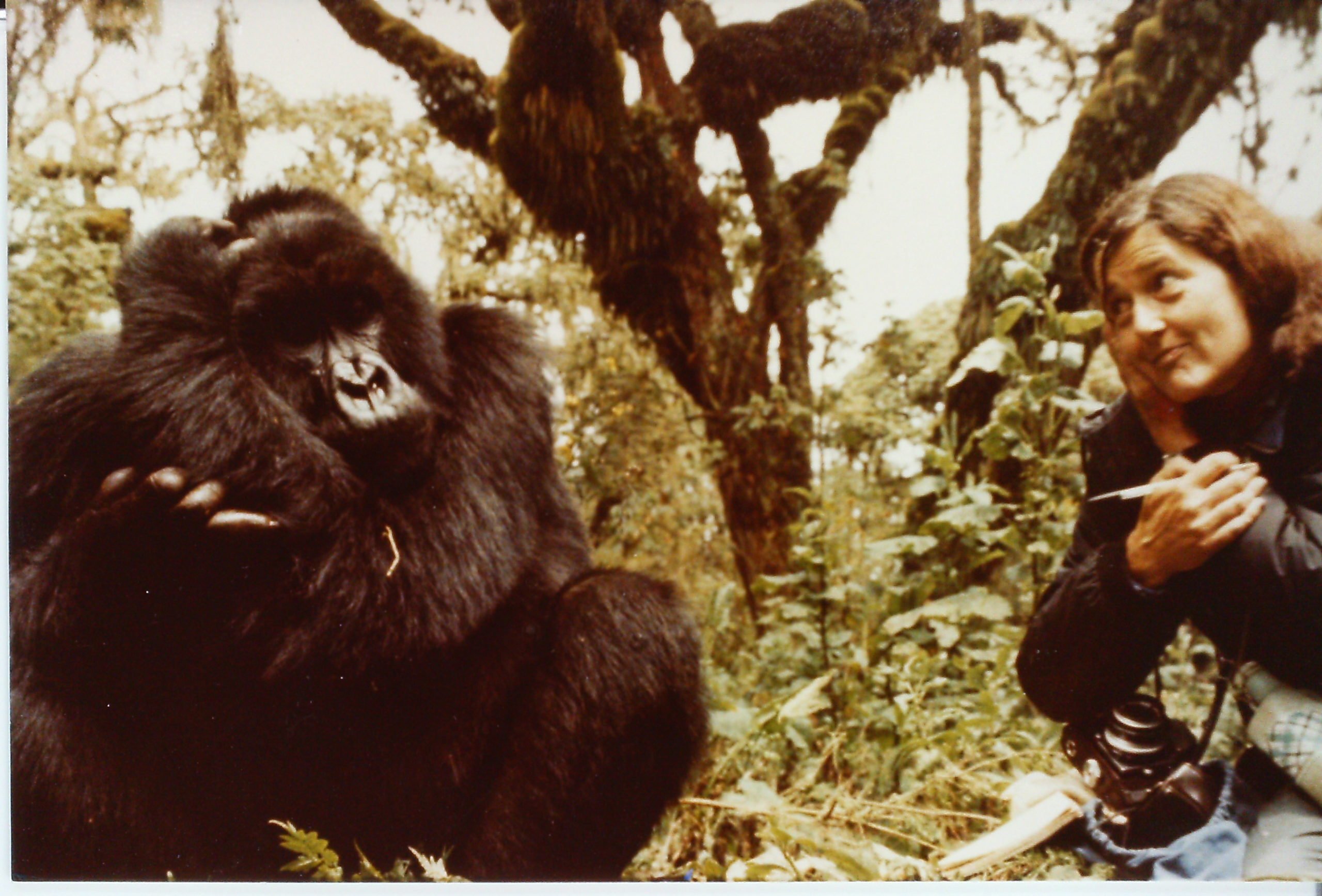October 2004
Fossey Fund Community Development Projects in Rwanda and Democratic Republic of Congo
The Dian Fossey Gorilla Fund International is involved in a number of community development projects in Rwanda and in the Democratic Republic of Congo, including the following:
In Rwanda:
In Kigali, the capital city where we have our African headquarters, we have three developmental projects that are currently being funded:
- The Tujijurane Project, which helps local widows to become financially independent and provides primary education to more than 50 children. The project has grown to encompass a compound made from bricks fabricated by the widows. Within the compound there are two rooms with blackboards, which the widows use as they learn to read and write. In the mornings, children who were previously not attending school have been receiving a primary education. The widows have been taught brick-making, hair-dressing, and tailoring of school uniforms. Sewing machines have been bought and are in use. During the day, the widows can earn money by fixing hair for men and women and selling school uniforms at a reasonable price for the local people.
- The Kigali Public Library Project directed by the Kigali-Virunga Rotary Club. This library will be the first such public facility in Rwanda. It has been agreed that one of the contributing factors to the genocide was the lack of public access to international information. DFGFI is sponsoring the science wing in honor of Dian Fossey. The first level is nearing completion. The government of Rwanda has agreed to donate $500,000. Completion of the building is planned for 2005.
- The Amani ya Juu Artisan Sewing Project. This project sponsors women to make unique sewing crafts and brings together all ethnic groups to teach independence and reconciliation. We are selling their gorilla-design products on our website.
 In Ruhengeri, where the Karisoke Research Center is based, we are sponsoring a development project with the Ba'Twa people. The Ba'Twa are the indigenous people of Rwanda and historically have been called “pygmies” because of their small stature. Unfortunately, they suffer from extreme poverty and lack of financial independence.
In Ruhengeri, where the Karisoke Research Center is based, we are sponsoring a development project with the Ba'Twa people. The Ba'Twa are the indigenous people of Rwanda and historically have been called “pygmies” because of their small stature. Unfortunately, they suffer from extreme poverty and lack of financial independence.
Two local organizations — CAURWA (indigenous peoples organization) and REDO (an organization that helps integrate the Ba'Twa with the other ethnic groups) — sent DFGFI a proposal for developmental activities which include bee-keeping, mushroom-growing, identification of medicinal plants, and the fabrication of low-energy stoves.
We funded their proposal in May 2004, and the people have already been trained in sustainable methods of bee-keeping and mushroom-growing. Supplies for the two projects are arriving. The fabrication of low-energy stoves will be starting this month. More than 60 species of medicinal plants have already been identified.
In the Democratic Republic of Congo:
- The Pigs for Profit Program has already distributed 19 pigs to selected families around the Tayna Gorilla Reserve, a community-based preserve that we help support. An additional pig went to the orphan project, which we also help support. After the pigs have reproduced, each family will donate at least two pigs (depending on the number produced) to other selected families to help provide protein and an income.
- The Widows Agricultural Project has already put seeds in the ground to provide crops to sell and to be used for our Orphans Nutritional Drink Project. This project provides a drink developed by our physician, Dr. Anny Muyisa, to provide local orphans with minimum daily nutritional requirements. This project started in April 2004. The Orphans Project provides housing, food, and school for 164 war-orphans. We have refurbished the housing after a brief period of insurgency and the orphans have started school again for this year.
- Our Secondary School Program provides a high school education for 30 teenagers from the areas around the community-based reserves we work with. These teenagers were selected from many applicants based on their desire to learn and contribute to their home villages and ecosystems. We have paid their school fees and supplies for this trimester. All are doing well.
Our thanks go to the special donors who have helped to fund these projects!






